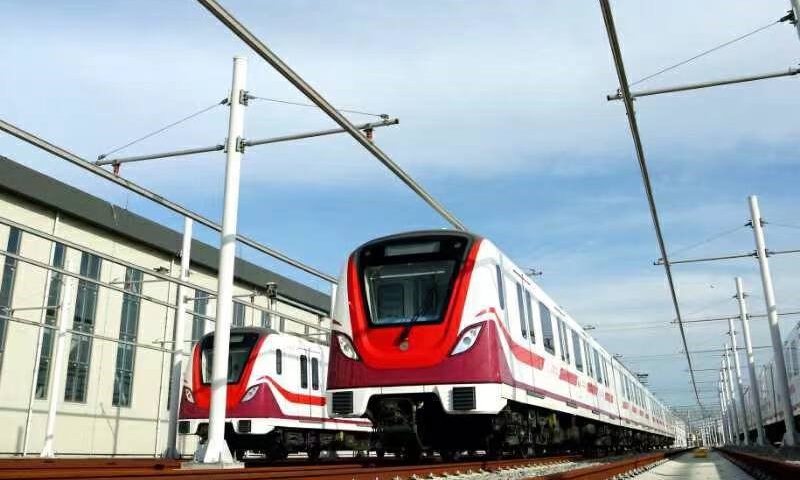The opening ceremony for a driverless high-speed metro manufacturing project undertaken by CRRC was held in Ankara, Turkey on Wednesday, the country’s first driverless metro project as well as China’s first driverless metro project with a speed of 120 kilometers per hour to be constructed overseas.
CRRC will cooperate with 13 Turkish companies to complete the build for the first 60 locomotives locally, with the vehicles expected to be put into use on the Istanbul Airport subway line, becoming the first driverless metro line in Turkey.
The driverless high-speed subway trains are being manufactured by CRRC Zhuzhou Locomotive Co., with a maximum operating speed of 120 kilometers per hour and a maximum capacity of 1,100 passengers. The train adopts the highest international grade GoA4 fully automatic operation system, eliminating the driver’s cab, and is capable of completing unmanned start, stop, passenger loading and maintenance operations, meeting the needs of a variety of driverless operation scenarios.
In addition, the newly developed rack-controlled traction system can effectively adapt to the needs of local ramp climbing, so that the train is designed for excellent performance and high speed and comfort during operation.
The Istanbul Airport subway line is the first high-speed metro line in Turkey and serves as an important transportation link between the airport and the city center, with an average daily capacity of 800,000 passengers. The entry of driverless high-speed metro technology into Turkey will not only benefit local residents’ travel, but also promote the localization process of Chinese technology and enterprises.
According to Li Yangyang, general manager of CRRC Zhuzhou Locomotive Co. in Turkey, the company is committed to win-win cooperation with local companies across procurement, manufacturing, operation and maintenance. The localization rate of the train manufacturing project reaches 60 percent, creating more than 200 jobs, which directly promoted the development of local rail transit industry.
(Global Times)




